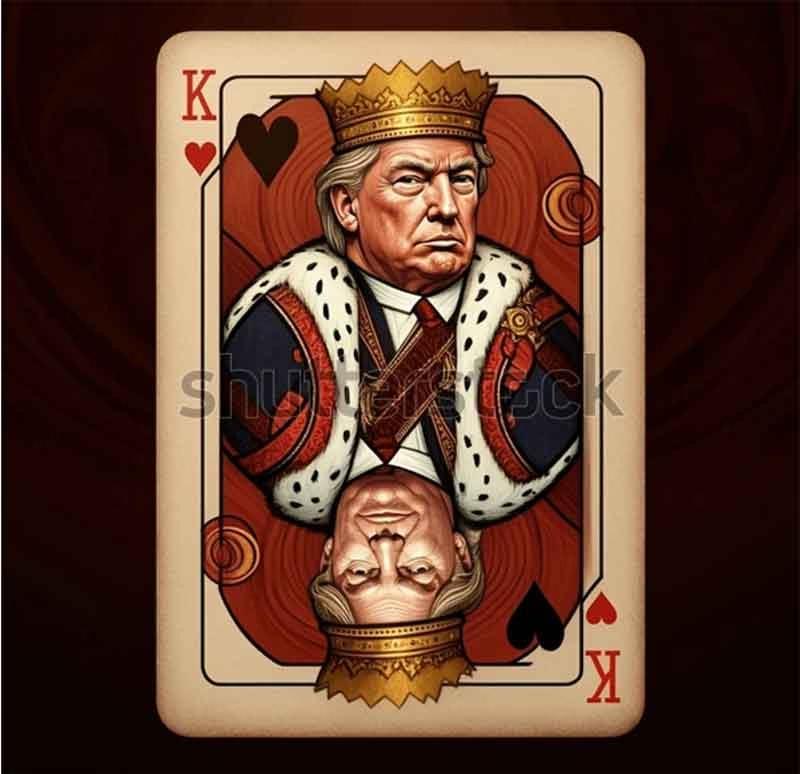
MEXICO CITY – Latin America has not figured prominently in US President Donald Trump’s foreign and trade policies during his first 100 days in office, despite the appointment of a Latino – Marco Rubio – as Secretary of State. But that does not mean the region has been spared the fallout from his controversial decisions on drugs, immigration, trade, or foreign policy. More worryingly, all signs point to continued upheaval.
Trump’s return to the White House has been felt more acutely in Mexico than in any other Latin American country. But many of his most extreme threats, such as mass deportations of Mexicans and other immigrants to the country, have not materialized. This is partly because far fewer people are entering the United States without papers (many of those deported under former US President Joe Biden fell into this category), and partly because finding and expelling undocumented aliens is a logistical nightmare. As a result, the dozens of shelters the Mexican government hastily prepared for deportees remain largely empty, although that could change in the future.
Trump’s promised moves against the Mexican drug cartels have also gone nowhere. Trump has designated some of them as foreign terrorist organizations – thereby empowering his administration to impose economic penalties and take military action against these groups – but has stopped short of implementing such measures. While drone flights and spy-plane incursions into Mexican airspace have increased, these were already taking place under the Biden administration.
As for trade, keeping track of each new tariff announcement – and its subsequent pause – for a country like Mexico, which has received “special” treatment from Trump, is undoubtedly difficult. True, Mexico was exempt from Trump’s most recent round of “reciprocal” tariffs, and the 10% baseline tariff imposed during the 90-day pause. But the country remains subject to a 25% tariff on all exports that do not comply with the US-Mexico-Canada Agreement, allegedly to combat fentanyl trafficking and illegal migration, as well as 25% tariffs on steel, aluminum, automobiles, and auto parts. Other countries may have it worse, but Mexico is by no means insulated from Trump’s trade war.
Several Central and South American countries have also experienced the whiplash of Trump’s on-off trade war. The “reciprocal” tariffs were particularly jarring for the 10 other countries – including Chile, Colombia, and Peru – that have signed free-trade agreements (FTAs) with the US, even if their rates were comparatively low. The cozy relationship between Salvadoran President Nayib Bukele and Trump was not even enough to insulate the country, which also has an FTA with the US, from this blitz. Others, like Brazil, are suffering from the 25% tariff on steel. Moreover, the Trump administration’s apparent disdain for free trade has also dashed Argentina’s hopes of signing its own FTA with the US.
More importantly, though, many Central American countries are cooperating with the administration on immigration. Guatemala, Honduras, El Salvador, and even Nicaragua have agreed to accept non-national deportees from the US. While the most highly publicized example is the roughly 200 Venezuelans who were removed from America and sent to the infamous Terrorism Confinement Center (CECOT) in El Salvador, there are many others. So far, deportation numbers have remained low, largely for the same reasons as in the case of Mexico, but could increase soon. But these partnerships are nothing new. Guatemala, Honduras, and El Salvador – the “Northern Triangle” – have long functioned as “safe third countries” for the US and will continue to do so.
Panama has fared much worse, becoming a battleground for the Sino-American rivalry. Trump wants the Panama Canal back, and no one knows how far he is willing to go to achieve this goal. An apparent Panamanian concession – the sale of two Chinese-owned ports to BlackRock – seems to have been held up by the Chinese government. The intensifying geopolitical and economic conflict between the superpowers bodes ill for the isthmic country’s future.
Trump has also taken aim at Venezuela and Cuba. The administration’s initial ambivalence toward Venezuela – Trump’s team was negotiating deportation flights with President Nicolás Maduro’s regime while simultaneously ending Chevron’s permit to pump and export Venezuelan oil – was quickly replaced by a campaign of “maximum pressure.” This includes a 25% tariff on countries that import Venezuelan oil and the extension of existing sanctions.
Rumors are swirling that Trump’s negotiators have reached an agreement with the Venezuelan opposition, whereby – in exchange for ousting Maduro – the US would be granted unfettered access to Venezuela’s immense oil reserves. But these reports have proved hard to substantiate. In any case, Trump and Rubio are unlikely to moderate their aggressive approach, even if harsher sanctions increase the number of Venezuelans fleeing the country.
The same is true for Cuba. Tightening the screws will only deepen the island’s misery, fueling the exodus of Cubans, some of whom will flee to the US. But Rubio’s Cuban-American heritage will probably prevent him from embracing a realistic strategy. Instead, the administration may strengthen the economic embargo on Cuba, further restricting travel and the flow of remittances. And if Trump imposes secondary sanctions, like those imposed on Venezuela, Cubans will only become more impoverished and desperate.
Trump’s attention may be focused elsewhere, but this does not mean that Latin American countries are immune to the consequences of his decisions. The intensifying US-China conflict, the threat of a global recession triggered by the incipient trade war, and the weakening of international institutions traditionally will have far-reaching consequences for the region – even for countries that have stayed off the US president’s radar.
Subscribe to Our Newsletter
Get the latest CounterCurrents updates delivered straight to your inbox.
Jorge G. Castañeda, a former foreign minister of Mexico, is a professor at New York University and the author of America Through Foreign Eyes (Oxford University Press, 2020).
Copyright: Project Syndicate, 2025.
www.project-syndicate.org














































